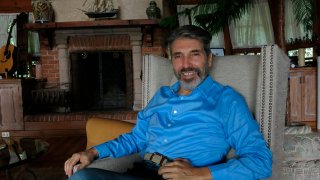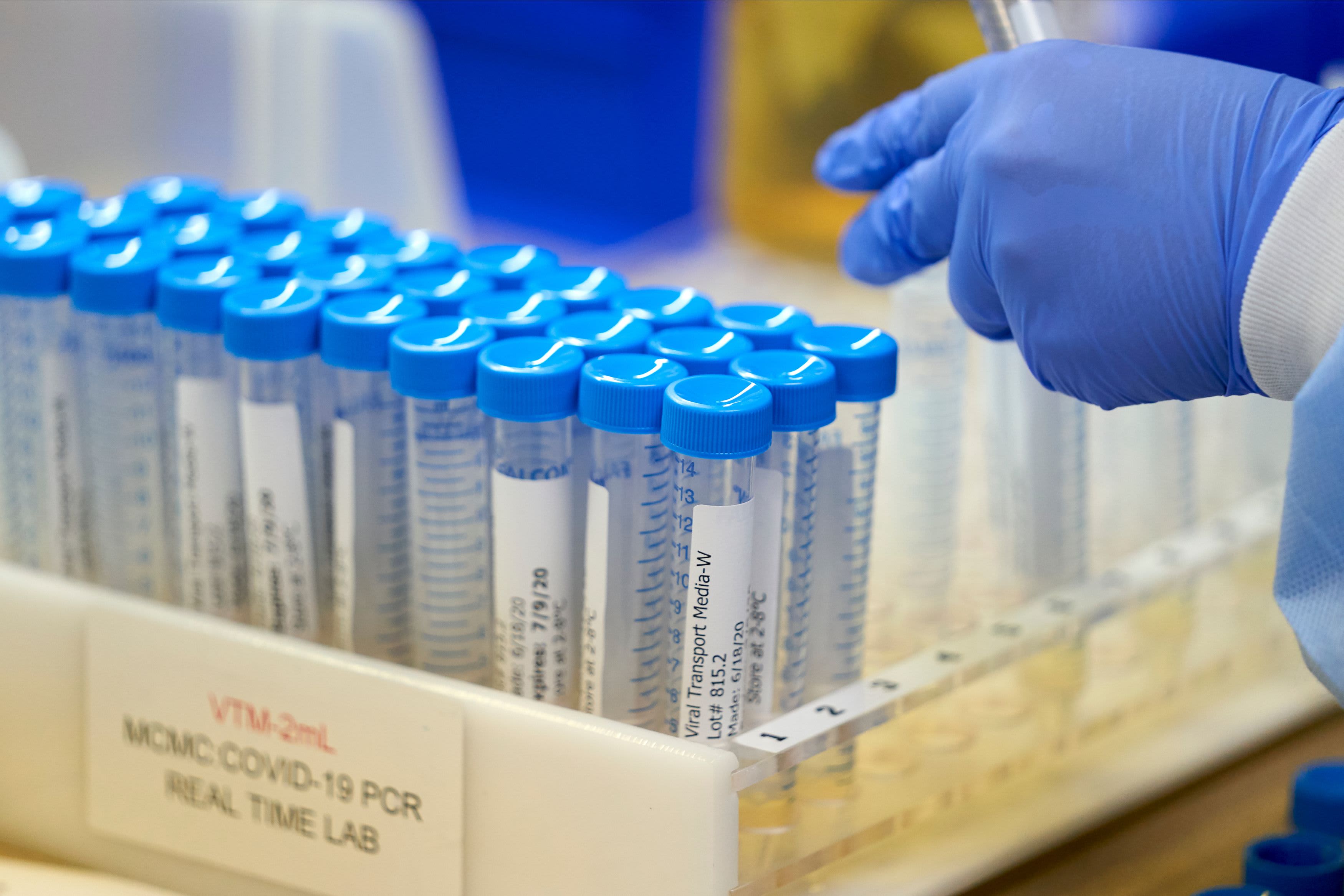
Diego Verdaguer, the Argentine singer-songwriter behind hits such as "Corazón de papel,” "Yo te amo" and "Volveré" who sold almost 50 million records, died of complications from COVID-19.
He was 70 years old.
The naturalized Mexican-Argentine musician and husband of singer Amanda Miguel died Thursday afternoon in Los Angeles, his daughter Ana Victoria said in a statement issued early Friday by Diam Music, the record company of Verdaguer and his wife.
Get Southern California news, weather forecasts and entertainment stories to your inbox. Sign up for NBC LA newsletters.
"With absolute sadness, I regret to inform all his public and friends that today, dad left his beautiful body to continue his path and creativity in another form of eternal life," said Ana Victoria. "My mother, I and the whole family are immersed in this pain, so we appreciate your understanding in these difficult times."
The statement was also published on the Twitter account of Amanda Miguel, who simply wrote "#restinpeace" along with the emojis of a pair of palm-to-palm hands and a white heart.
Verdaguer's last social media message, published on Thursday night, was to his wife: “I will never get tired of dedicating it to you! You are and will be the thief who stole my heart," says the tweet along with an image of the couple on the beach and part of the lyrics of their song "La ladrona": "Take care of me, love me, kiss me, pamper me."
According to the statement, Verdaguer contracted COVID-19 in December and was hospitalized. According to his publicist in Mexico, Claudia López Ibarra, he was vaccinated against the coronavirus.
"Yes, he was vaccinated... but the virus attacked him in the US when the delta variant was present," López Ibarra told the AP in a text message on Friday.
In Memoriam: People We've Lost in 2022
According to the publicist, Verdaguer frequently traveled to the United States, especially after the birth of Lucca, the eldest son of Ana Victoria, who lives in Los Angeles, and had even bought a property there. The artist also used to perform in concert in the United States and had a tour scheduled with Amanda Miguel for this year, "Toda una vida 2022 Tour,” with more than 20 scheduled dates.
No details about Verdaguer's funeral were released, and his representatives asked to respect the family's privacy.
In social networks, colleagues and friends began to express their regret upon hearing the news on Friday morning.
“We deeply regret the loss of #diegoverdaguer, we were together recently when they came to our concert in Los Angeles. Our hug for @amandamiguels and his family”, tweeted the Argentine duo Pimpinela.
Verdaguer was born in Buenos Aires on April 26, 1951 and made his solo debut at the age of 17 with the single "Lejos del amor", which was followed by others such as "Yo te amo" and " I Will Be Back.”
Since 1980 he lived in Mexico, to which he dedicated his album "Mexicano to the Pampas.” It was nominated for two Latin Grammys.
“I can tell you, I am more Mexican than anything. I love Mexico, I love what Mexico has meant in my life, I love the opportunities that Mexico has given me," Verdaguer said in an interview with The Associated Press in 2019.
Verdaguer met Amanda Miguel when she was 18 and he was 24. Their daughter Ana Victoria, who is also a singer, was born in 1983.
"Amanda Miguel has been my inspiration since I met her," Verdaguer told the AP. "I really appreciate everything we've done together as a couple, as artists, as individuals."
In 1987, the couple founded Diam Music, with which Verdaguer released all his productions to date, including the most recent, 2019's "Corazón bambino,” and an album that will be released posthumously, "Por la libre.”
In 2019, Verdaguer was recognized by the Mexican Society of Authors and Composers (SACM) with a special medal for his 50-year career.
In recent years, Verdaguer made the leap to streaming and accumulated more than 2 million followers on his social networks, while his videos exceeded 1,000 million views.
"You have to evolve spiritually and understand the meaning of life," Verdaguer told the AP. "We come to live a divine experience, we come to learn, we come to give ourselves, we come to perfect ourselves, we come to give, we come to help, because by giving and helping you feel better."



